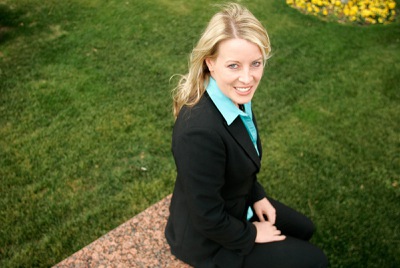Friday, March 20, 2009 | 2 a.m.
Two years ago green building was hailed as the future of the American development industry and Leadership in Energy and Environmental Design certified buildings were popping up across the country.
Then the economy hit the fan.
Some forward-thinking lawyers, instead of abandoning green building as a trend of bygone days, are using their free time to become even more involved.
Last year two Nevada lawyers passed the Green Building Council’s LEED Accredited Professional test, becoming the state’s first LEED AP lawyers.
Melissa Orien, a construction lawyer with Holland & Hart, and James Stout of the Stout Law Group said they took the test to prove their green building mettle and to hopefully build their reputations during the construction lull.
“I’m trying to stay ahead of the curve and bring new things to my clients,” Orien said. “The green trend is big right now, and the industry, for the most part, isn’t experienced in green building issues, whether they be Green Building Council issues or the broader green building movement.”
Stout recently left a large firm practice to break out on his own. After more than a decade in construction law in Nevada, Arizona and California, he created the Stout Law Group for a change of pace and perspective.
Most of his work today involves foreclosure defense, including representing victims of an alleged mortgage rescue scam by former Las Vegas talk show host Jack Ferm and his company, U.S. Justice Foundation.
Stout took the LEED accreditation test so he’ll be ready when the industry recovers.
“I think when they start building again, it will be important to have experience with green building,” Stout said. “And it’s important for large builders to have someone on the team that understands that concept and is prepared to talk to people about it. I think that’s going to become continually important in getting bids from developers.”
Orien and Stout took the test last fall and passed on the first try — but only after months of study.
And the two took very different paths to test day.
Orien took a formal online course and kept a strict study schedule — spending about 80 hours preparing.
Stout studied on his own whenever he found time, perusing study guides, memorizing flash cards and taking online preparatory exams.
Both lawyers have passed bar exams in multiple states and said the process of preparing for the LEED test was a different experience.
The test requires people to focus on things they have learned in their practice as well as the ins and outs of the LEED building certification process, they said. The biggest impediment was finding the time to study.
“The cost is fairly minimal — a few hundred dollars — but the time is the big thing,” Orien said. “Time is money, especially in a business like law where we live on billable hours. That’s the primary reason why I think you don’t see more LEED AP lawyers.”
Of course, once you pass the test and become a LEED Accredited Professional, you have to figure out what you’re going to do with it.
Orien uses her knowledge of the LEED process and other green building systems to troubleshoot in contracts involving green building.
She is also using it to prepare seminars for clients on the difference between working on green and nongreen work sites and contractors’ responsibilities and obligations.
“I think the biggest thing is that the green trend is huge, but people don’t always know what it is,” Orien said. “Contractors and builders often want to pursue these projects, but sometimes they really have no idea what they’re getting into. That’s when things go wrong. I’m able to be a resource to our clients. And it’s a way to make myself relevant.”
Stout said that since there isn’t a lot of green building-related litigation yet, LEED accreditation hasn’t been a huge asset to his young firm. But it has helped to connect him to the wider community.
“It hasn’t helped my practice, but it has helped me get involved in other green related things,” Stout said. “I’m accepted in that community — that nonlitigation community ... I’m not a liberal but I’ve always had an interest in the environment ... I saw that this was the wave of the future. The market will rebound. And I’ll be ready for it.”
Both lawyers see the accreditation as
more of a long-term investment than a marketing gimmick they can exploit in the short term.
Orien said that as a young female attorney in a field filled with older men, the LEED accreditation is a way to distinguish herself and level the playing field.
She is trying to carve out a niche for herself using her knowledge of green building and contracting.
“I’ve gained specialized knowledge in a specific area and that makes my field of knowledge more potent than if I had a broader practice,” she said. “I don’t know that it’s changed me or my practice, but it’s added credibility. The LEED AP is like the icing on the cake. I was doing this work before and have extensive experience in it, but this is a way to really demonstrate that I’m familiar with the LEED process.”




Join the Discussion:
Check this out for a full explanation of our conversion to the LiveFyre commenting system and instructions on how to sign up for an account.
Full comments policy